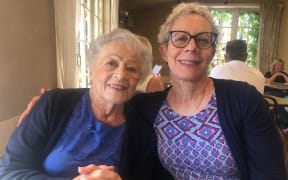The government is being told to act swiftly on immigration because delays are leading to the loss of urgently needed medical staff during the Covid-19 outbreak.

Photo: 123rf
An immigration lawyer wants a fast-tracked work to residence process for doctors and nurses, saying medics are the soldiers in the pandemic frontline.
Kamil Lakshman said there was a lack of urgency about immigration policy, especially given what was at stake with doctors and nurses.
"The way I look at it is this virus is like an enemy, an unseen enemy - and our doctors and our medical profession and our health care workers are the soldiers that are guarding us if it blew up," she said.
"So then surely we need to protect these people, surely we need to retain them. We need to look at it like an emergency and the narrative needs to change."
Expressions of interest (EOIs) in skilled migrant residence visas are still being accepted but none have been selected for 18 months, since the government suspended them at the start of the pandemic.
More than 10,000 EOIs are waiting to be selected, including over 900 nurses and 235 doctors.
A fast-tracked work to residence visa without the usual minimum timeframes would solve the problem, said Lakshman, as well as potentially attracting more medical staff to come from overseas.
Kate McKendry recruits overseas psychiatrists, while her colleagues find GPs and hospital specialists. New Zealand was already losing out on doctors who were going home, or setting off for other countries where residence policy was clearer, she said.
While there had always been a shortage of candidates for New Zealand as it could not compete on salary with the likes of Canada and Australia, now it was not even able to offer permanent residence, she said.
That uncertainty affected those considering a move and those already working here, and was leading to wasted time, money and effort.
"It's a lot of work for us, it's a lot of work for the doctor and it's a lot of work and a lot of money for the DHBs (district health boards)," she said.
"You've got to think from a DHB's perspective, this is a lot of money that they're investing to have somebody moving, and if somebody is moving here and they want to be here permanently - but they feel like they can't stay here permanently - that's a big disappointment, and it's got financial implications, it's got workforce implications, it's huge.
"I just don't understand why you wouldn't open up that pathway for psychiatrists and for doctors that we really need. There's a doctor I spoke to who's from the UK, he's on a WhatsApp group with his old colleagues, and some of them that are looking to move [here], they're not even considering, they're discounting New Zealand from the start because there isn't that permanent pathway for them."
RNZ has heard from GPs, hospital doctors and specialists who have left or are planning to leave because of the uncertainty about immigration policy and when government will make decisions.
Immigration adviser David Cooper said healthcare shortages had to be addressed and it was time to get on with their residence applications.
"You've got critical shortages, all throughout the health sector," he said. "And being able to say to an ICU nurse in Birmingham, 'please come to New Zealand, you're going to get paid less, and you can't get residence of New Zealand, you won't be able to buy a house, but we really do need you here' - it's not much of a sell is it?
In a statement, Immigration Minister Kris Faafoi said doctors and nurses met priority criteria for residence if they applied before expressions of interest were suspended last year.
"While doctors and nurses onshore wait for residence applications to be processed or EOIs to be selected, they are likely to be eligible for various further temporary visas to remain in New Zealand," he said.
"The government acknowledges the disruption that suspension of Expressions of Interest selections for the Skilled Migrant Category has had on some individuals. We are working through advice on when and how to re-open EOI selections, and will have decisions to announce soon."
Border exception requests had allowed 7734 healthcare workers and their relatives to arrive since April last year, he added.







